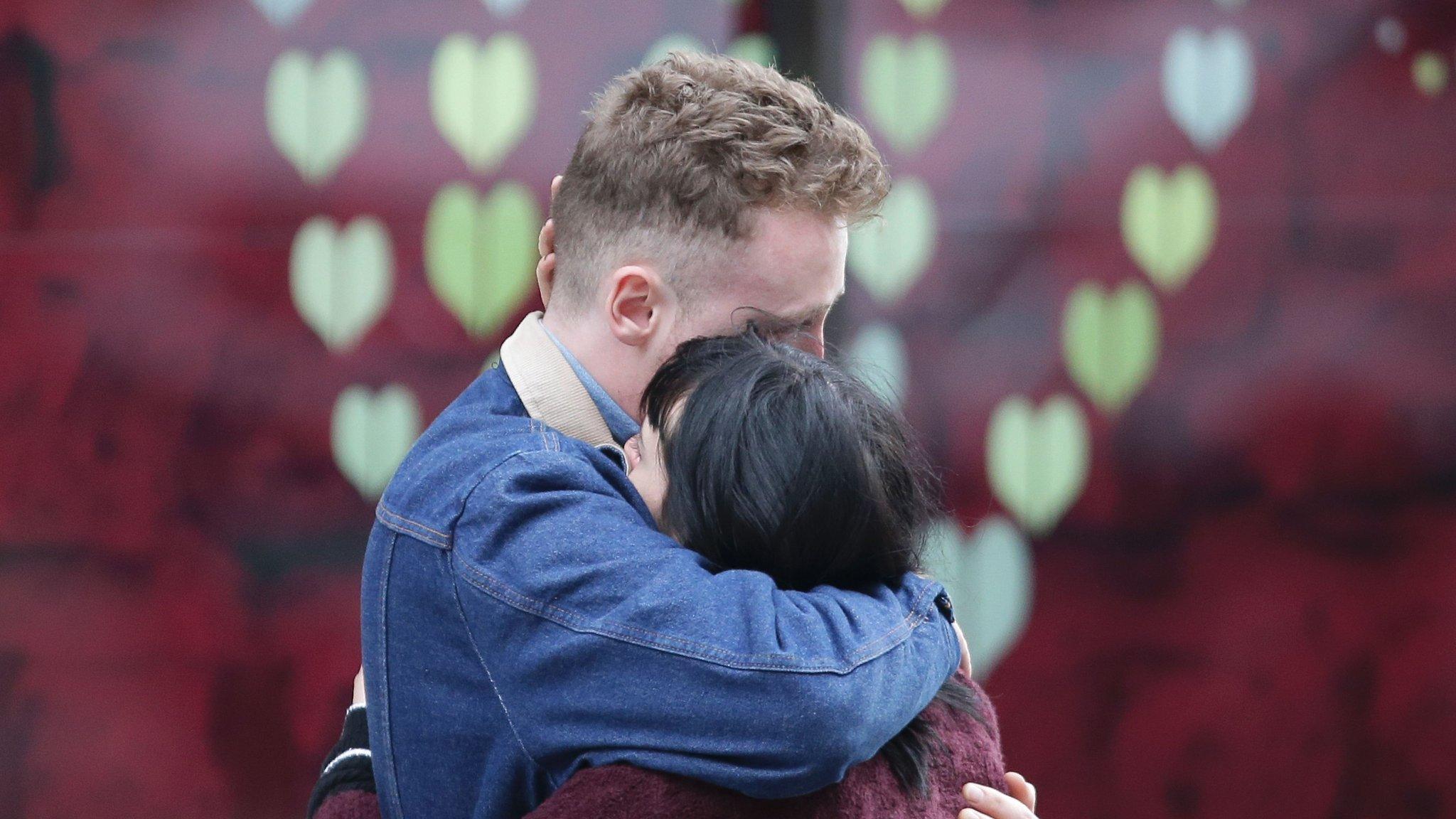London Bridge attack: 'We did the best we could,' says police officer
- Published
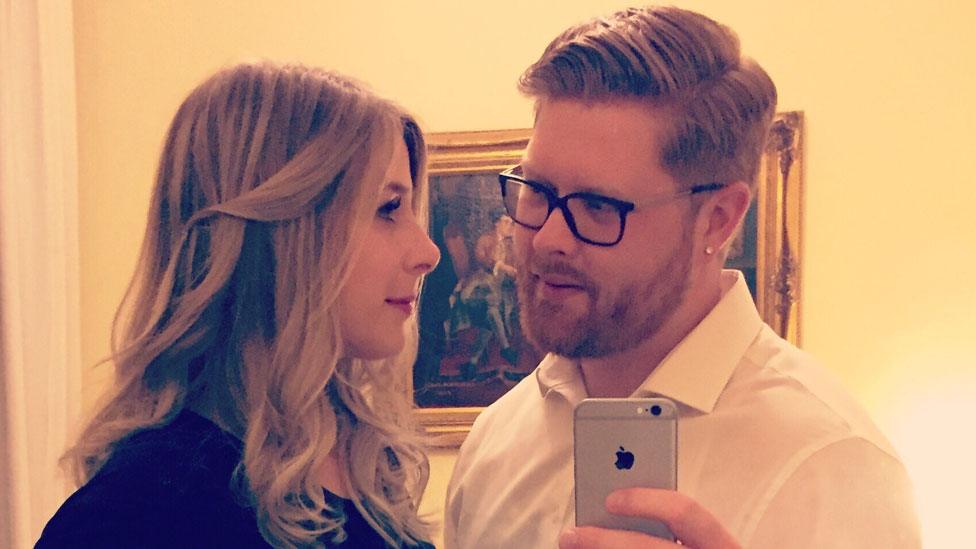
Chrissy Archibald was visiting London with her partner Tyler Ferguson when a van hit her
One of the first armed police officers at the London Bridge attack has told how the first thing he did was to treat a dying woman at the scene.
PC Andrew Duggan said he went into "medic mode" and helped Chrissy Archibald, who died after the attackers' van hit her on the bridge.
The officer told an inquest he thought it was a road traffic accident.
He stayed with Ms Archibald until an ambulance arrived, the court heard.
PC Duggan said he only then realised there was a further incident south of the bridge.
Friday was the fourth day of an eight-week inquiry into the deaths of the victims of the attack.
Ms Archibald's fiance, Tyler Ferguson, earlier told the inquest he frantically tried to revive her, despite knowing she was dead.
The other victims were: James McMullan, 32, from Hackney in London, French trio Xavier Thomas, 45, Alexandre Pigeard, 26, and Sebastien Belanger, 36, Ignacio Echeverría, 39, from Madrid, and Australians Sara Zelenak, 21, and Kirsty Boden, 28.
Gareth Patterson, the barrister representing the families of some of the people stabbed in Borough Market, asked PC Duggan why he did not realise sooner there had been a terrorist attack.
Police shot dead the suspects, Khuram Butt, 27, Rachid Redouane, 30, and Youssef Zaghba, 22, around 10 minutes after they began the attack.
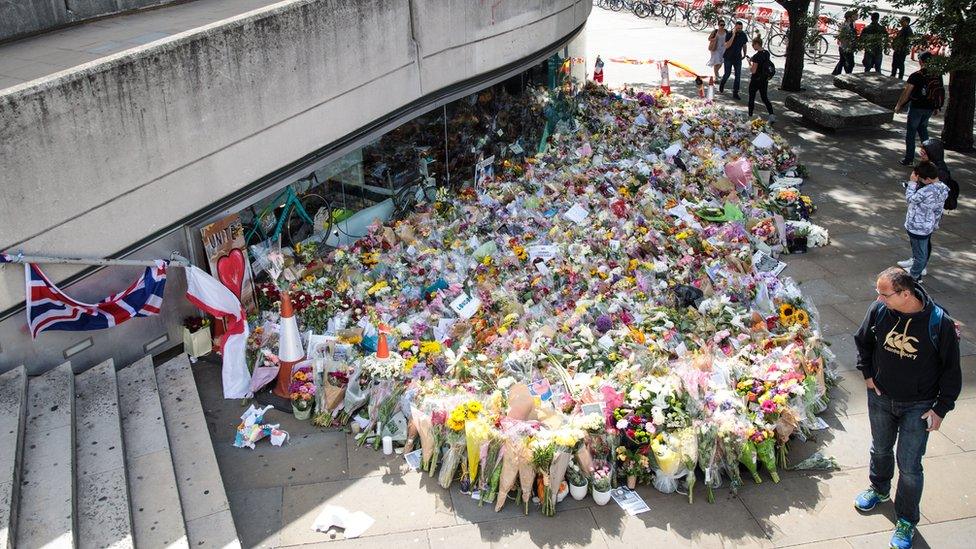
Floral tributes lie at the south end of London Bridge following the attacks on 3 June 2017
PC Duggan said he initially did not hear messages sent over the radio channel, used by armed officers, suggesting the incident was being treated as terrorism.
Mr Patterson asked: "With the benefit of hindsight, as possibly the first, or certainly a very early armed officer on the scene, would it have been better to have proceeded and investigated and potentially stopped this marauding terrorist attack?"
PC Duggan said: "With the benefit of hindsight, no. My colleague and I did the best we could."
The barrister then asked: "Do you think an opportunity might have been missed that night to stop this stabbing attack earlier than it possibly was?"
PC Duggan replied: "No, I believe we deployed and did the best we could with the information at the time."
He added that it seemed "like all hell [was] breaking loose" on London Bridge.
After helping the injured people on the bridge, he said he became aware there was another incident in Borough Market.
As he rushed to the scene, he could hear gunshots "echoing off the walls", he told the court.

At the inquest
BBC News reporter Alice Evans
PC Andrew Duggan spent almost an hour and a half in the witness box in what, at times, felt like a very heated exchange with Gareth Patterson QC.
PC Duggan said he left his main gun locked in his armed response car and headed onto the bridge in ''medic mode'', thinking there had been a car crash.
He helped to perform CPR on Ms Archibald until paramedics arrived - before becoming aware he was needed elsewhere.
Mr Patterson asked why, despite the Manchester and Westminster Bridge attacks, it had not crossed PC Duggan's mind that the events could have been part of a terrorist attack in which his expertise as a firearms officer might be needed.
Secondly, he asked him why he had not heard the request on police radio for armed officers to attend.
PC Duggan looked exasperated as he repeatedly told the court the only things he heard on his radio were the initial call - a "very, very loud shout" of "London Bridge" - the belief there had been a road traffic collision, and the possibility there was more than one casualty.
Other information - including that people had been stabbed - had been transmitted on British Transport Police and Met Police radio channels, the court heard.
But since PC Duggan had his earpiece radio set to the City Police channel he had not heard these other details, he said.
Mr Patterson and the chief coroner, Judge Mark Lucraft QC, also made a point of thanking passers-by and the emergency services who made "extended efforts" to save Ms Archibald's life.

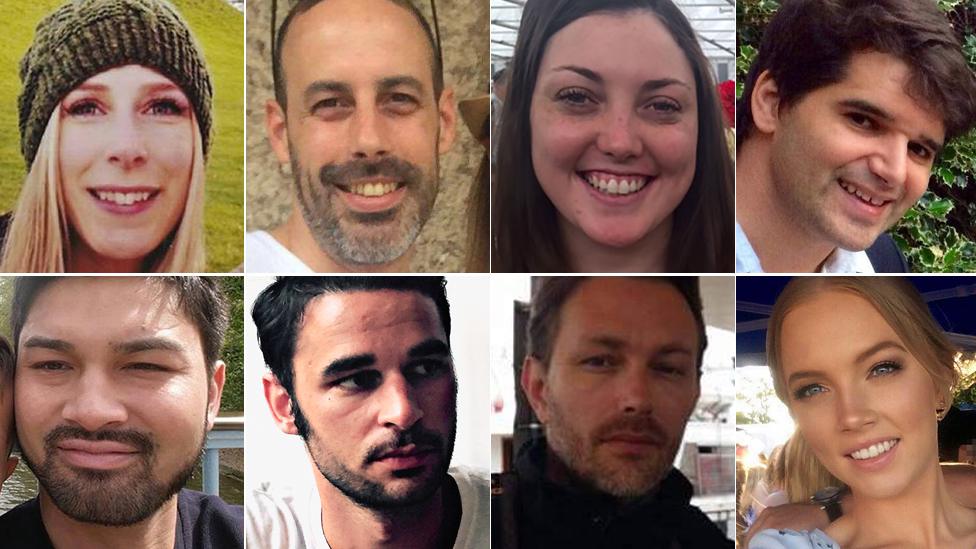
The victims of the attack clockwise - Chrissy Archibald, Sebastien Belanger, Kirsty Boden, Ignacio Echeverría, Sara Zelenak, Xavier Thomas, Alexandre Pigeard, James McMullan
CCTV footage played to the court earlier on Friday, which was described by counsel to the inquests Jonathan Hough as "graphic and distressing", showed the van ploughing into Ms Archibald after mounting the kerb.
Her partner heard a "loud thud" and then "Chrissie was no longer next to me", he said.
He could see her arms and legs as she was "pushed and pushed" down the road under the van.
When she was finally released, she had suffered "devastating injuries".
He watched as she "convulsed and released the physical life from her body", but he attempted to perform CPR anyway, he said.
The inquests were told on Wednesday that Ms Archibald might still be alive if barriers had been put up following the Westminster Bridge attack, which took place two months earlier.
The inquests continue.
- Published22 May 2019
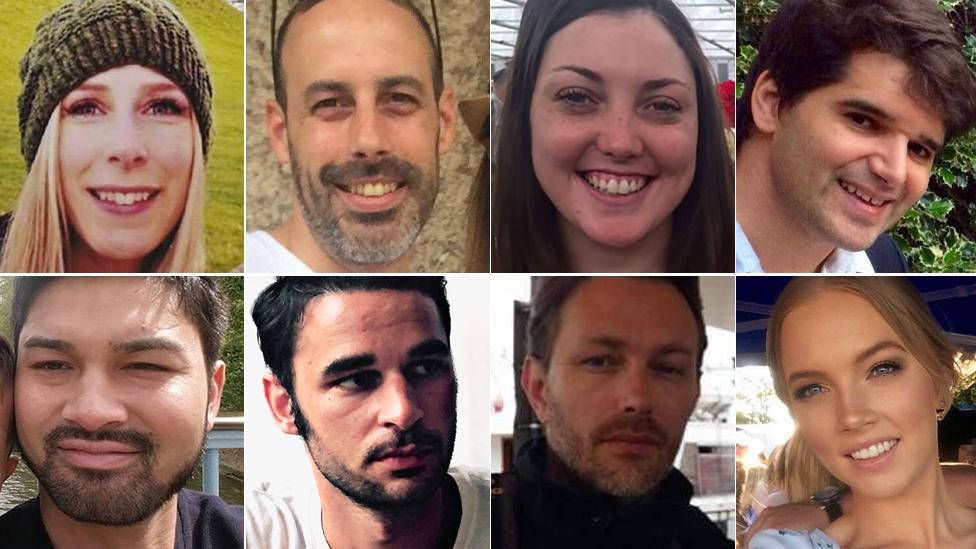
- Published3 May 2019
